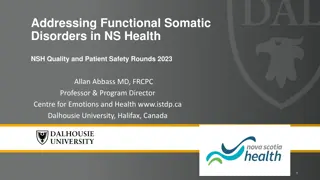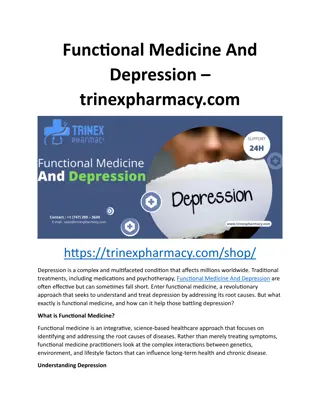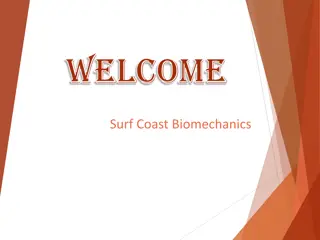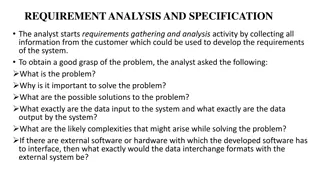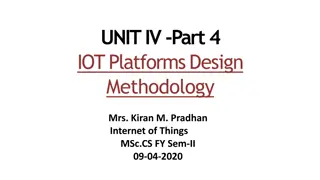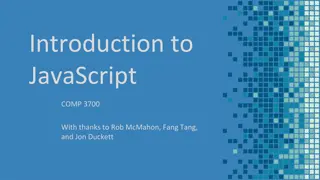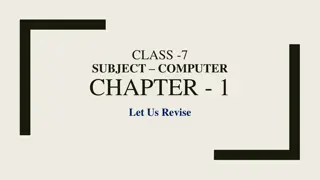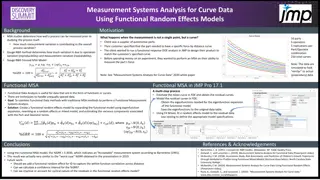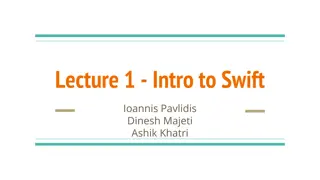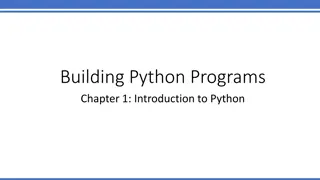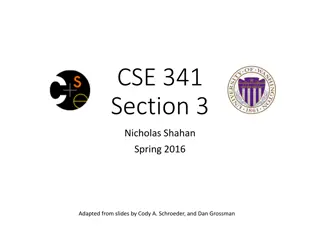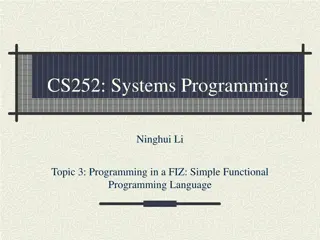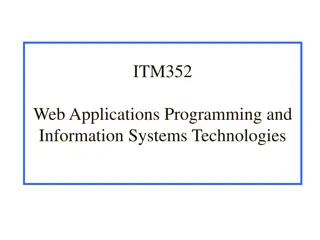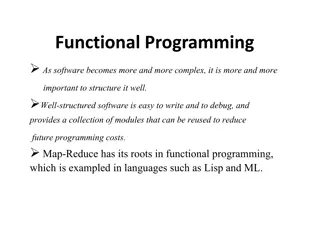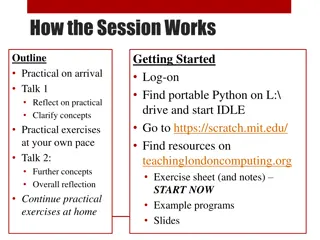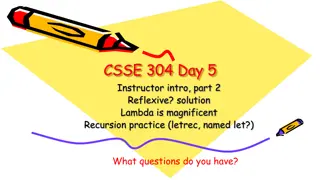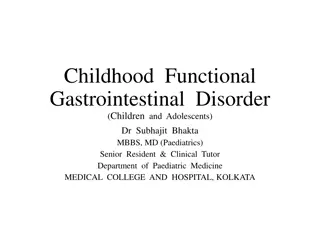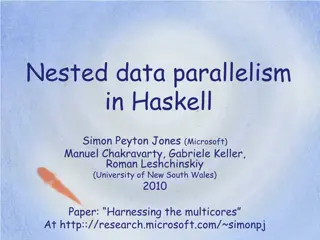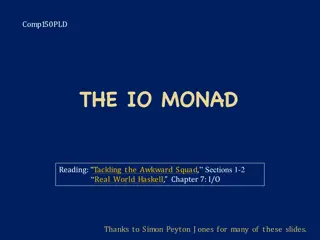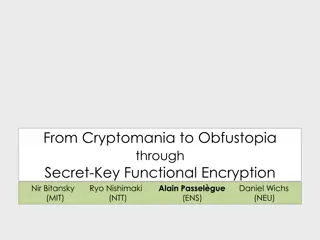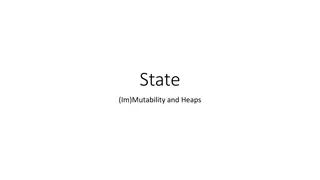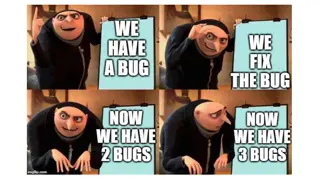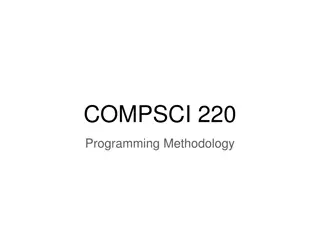Functional Programming
Functional programming, a paradigm that emphasizes declarative programming, pure functions, and limited side effects. Explore the benefits and characteristics of functional programming languages.
0 views • 20 slides
Functional Safety and Cyber Security International Standards Update
This update covers various international standards related to functional safety and cyber security, including protocols like CSMA/CD, CSMA/CA, TSN, as well as standards for safety engineering tools and safety modules. It also highlights the collaboration with BSI standards for developing industry st
3 views • 16 slides
Functional Food and Beverages Market to be Worth $532.98 Billion by 2030
The growing health-conscious population has boosted the demand for nutritional bars and beverages, increasing the sales of functional food and beverages. Consumers are increasingly spending on value-added food categories to maintain healthier lifestyles, boosting the sales of functional food and bev
2 views • 3 slides
Addressing Functional Somatic Disorders in Patient Safety Rounds
Explore the burden of functional somatic symptoms in NS Health, delve into emotional factors contributing to somatic symptoms, and learn about evidence-based short-term talking therapy for functional somatic disorders. Gain insights from reference materials and data on unexplained symptoms and emerg
3 views • 29 slides
Functional Medicine and Depression - trinexpharmacy.com
Depression is a complex and multifaceted condition that affects millions worldwide. Traditional treatments, Functional Medicine and Depression including medications and psychotherapy, are often effective but can sometimes fall short. Enter functional medicine, a revolutionary approach that seeks to
2 views • 7 slides
If you are looking for Functional Fitness in Bellbrae
If you are looking for Functional Fitness in Bellbrae, Surf Coast Biomechanics is a health and training centre based in Torquay, New South Wales, utilising Functional Patterns training. We believe that no matter where you are in terms of health and fitness, we can help you improve and move you towa
0 views • 6 slides
Software Requirement Analysis and Documentation Process
The requirement analysis and specification process involves gathering information from customers, identifying the problem, solutions, data requirements, complexities, and potential interfaces. Key components of a Software Requirements Specification (SRS) document include functional requirements, non
1 views • 23 slides
Decision Analysis and Operations Research in Management
This content delves into Management Decision Analysis and Operations Research techniques such as Linear Programming, Integer Linear Programming, Dynamic Programming, Nonlinear Programming, and Network Programming. It covers the phases of an Operations Research study, mathematical modeling for decisi
0 views • 36 slides
Design Methodology for IoT Platforms: Functional View Specification
Functional view specification in IoT platform design methodology involves defining functional groups for devices, communication, services, management, security, and applications. Each group serves specific purposes such as device monitoring, communication protocols, service provision, system managem
1 views • 12 slides
Introduction to JavaScript: History, Features, and Functional Paradigm
JavaScript, initially developed by Netscape Communications in 1995, has evolved into a versatile language with support for functional programming paradigms. From its history with Netscape Navigator to its support for prototypal inheritance and functional features like higher-order functions and API
3 views • 18 slides
Module 2: PSEA and Safe Programming Training of Trainers (ToT) by CRS HRD
This Module 2 focuses on PSEA and Safe Programming, covering key sessions on understanding safe programming, identifying protection and SEA risks, and mitigating risks. It emphasizes the importance of safe programming in increasing safety, dignity, and access, with staff playing a crucial role. Part
3 views • 19 slides
Computer Programming: Basics and Beyond
In this chapter, we delve into the fundamental concepts of computer programming. We explore the definition of a program, the role of programming languages, types of programming languages, and generations of programming languages. Additionally, an assignment is provided to reinforce the key learnings
0 views • 25 slides
Object-Oriented Programming (OOP) in Python
Python is a versatile programming language that supports various programming approaches. Object-Oriented Programming (OOP) is a popular method in Python where objects are created to solve programming problems. OOP in Python focuses on creating reusable code, following the principle of DRY (Don't Rep
2 views • 35 slides
Functional Measurement Systems Analysis for Curve Data Using Random Effects Models
Measurement Systems Analysis (MSA) is crucial in determining the contribution of measurement variation to overall process variation. When dealing with curve data instead of single points, a Functional MSA approach using random effects models can be applied. This involves estimating mean curves, mode
0 views • 5 slides
Introduction to Computers and C++ Programming Lecture 1 - Overview and Basics
This lecture covers the fundamental concepts in computer systems and programming using C++. Topics include the main components of a computer, bytes and addresses in memory, computer systems hardware and software, understanding programs, programming languages, compilers, preparing and running C++ pro
2 views • 21 slides
Web Application Development and Programming CTE Program Overview
Viera High School offers a comprehensive CTE program in Web Application Development and Programming, taught by Mr. Dohmen. Students learn popular programming languages like Python, SQL, JavaScript, Java, C#, and C. The courses cover web programming, JavaScripting, and PHP programming, providing cert
3 views • 7 slides
Functional Programming and Concurrency in C++
Dive into the world of functional programming and concurrency in C++, covering topics such as monads, higher-order functions, combinators, futures, promises, and shared states. Explore advanced concepts like move semantics, functors, currying, and more to enhance your C++ programming skills.
2 views • 26 slides
Introduction to Programming with RobotC in Robotics Education
Programming in robotics involves giving specific directions to a robot using software like RobotC. This introduction covers the basics of programming, software organization, and how to get started with RobotC through creating flow charts and programming tasks. Learn about setting up RobotC, creating
1 views • 8 slides
Introduction to Programming and Computer Instructions
Programming is the process of creating instructions for computers to follow and accomplish tasks. It involves turning human language instructions into detailed binary machine language. Before learning programming, individuals may have different levels of experience, ranging from no experience to pro
0 views • 16 slides
Introduction to Swift Programming Language
Swift is a modern programming language known for its evolution and development since 2010. It is a general-purpose, compiled language that supports both object-oriented and functional programming paradigms. Key features include constants, variables, operators, strings, optionals, and control flows l
0 views • 19 slides
Development of Attosecond Theory for Nobel Prize through Verilog Programming
Attosecond generation is a crucial technique for creating attosecond pulses by manipulating radiation waves. This research paper focuses on developing the Attosecond generation equation through Verilog programming and validating it using test programming techniques. The interface between equations,
2 views • 15 slides
Computer Science and Python Programming Basics
Introduction to Computer Science processes and problem-solving, highlighting the significance of programming languages like Python. Learn about procedural, functional, and object-oriented programming languages, with a focus on the simplicity and widespread usage of Python for beginners. Dive into th
1 views • 45 slides
Standard Library and Functional Concepts in Programming
Discover the importance of a standard library in programming, explore topics like anonymous functions, unnecessary function wrapping, returning functions, and high-order functions. Get insights into common operations and how functional concepts enhance coding efficiency and readability.
0 views • 11 slides
CS252 Systems Programming Course Overview
This course overview covers topics such as C programming review, Unix basics, Unix systems programming, and grading details. The course includes labs on C/C++ programming, Unix shell scripting, and writing your own shell. Communication is emphasized through Piazza for questions/answers and Blackboar
0 views • 41 slides
FIZ: A Simple Functional Programming Language
FIZ is a functional programming language that uses only integers and supports basic features like incrementing, decrementing, and conditional expressions. Functions are defined in a simple manner, and errors can be handled using the "halt" command. The language emphasizes recursion over loops and fe
0 views • 21 slides
Introduction to Programming Languages and Functional Programming with OCaml
Welcome to Lecture 1 of CSEP505 on Programming Languages focusing on OCaml and functional programming. Professor Dan Grossman introduces the course, discusses the importance of studying programming languages, and shares insights on course mechanics and content. Topics include staff introductions, co
1 views • 84 slides
ITM352 and Its Role in MIS
Welcome to ITM352, a course focusing on acquiring basic programming skills in a business context. This course emphasizes hands-on experience in developing relevant software applications, addressing real technology problems, and fostering rapid self-learning of IS/IT technologies. Misconceptions arou
0 views • 36 slides
Functional Programming Paradigm
Functional programming emphasizes well-structured software that is easy to write and debug, with reusable modules to reduce future programming costs. It introduces higher-order functions and first-class function values, fostering declarative programming for tasks like symbolic data manipulation and
0 views • 21 slides
Essential Principles of Teaching Programming Languages
Foundational concepts in programming form the core of computing. This encompasses understanding programming fundamentals, teaching language aspects effectively, statistical programming for data analysis, and guiding students unfamiliar with programming environments towards grasping the logic and sim
0 views • 23 slides
Computer Programming Principles
Dive into the world of computer programming, covering high-level and machine languages, compilers, interpreters, writing programs, top-down design, and the array of programming languages available. Understand the essentials of building code to control computers, the diversity of programming language
0 views • 23 slides
Transitioning from Scratch to Python: A Practical Approach for Learning Textual Programming
Explore the transition from visual programming in Scratch to textual programming in Python using Turtle Graphics. Engage in practical exercises, clarify key concepts, and reflect on the challenges and progress in learning core programming concepts. Utilize resources from TeachingLondon Computing to
0 views • 21 slides
Introduction to Lambda in Scheme Programming
Explore the power of Lambda in Scheme programming through reflexive solutions, recursion practice, and creating curried procedures. Learn how procedures can be first-class data objects and try hands-on exercises like writing the largest-in-lists code using letrec and named let. Pair programming and
0 views • 6 slides
Childhood Functional Gastrointestinal Disorders
Functional Gastrointestinal Disorders (FGIDs) in children and adolescents are characterized by chronic or recurring symptoms that cannot be fully explained by current structural or biochemical tests. These disorders emphasize the role of normal development in symptom presentation and the lack of evi
0 views • 46 slides
Overview of Nested Data Parallelism in Haskell
The paper by Simon Peyton Jones, Manuel Chakravarty, Gabriele Keller, and Roman Leshchinskiy explores nested data parallelism in Haskell, focusing on harnessing multicore processors. It discusses the challenges of parallel programming, comparing sequential and parallel computational fabrics. The evo
0 views • 55 slides
CS 288-102 Intensive Programming in Linux Spring 2017 Course Details
Learn Linux programming, C language proficiency, Bash scripting, and more in this intensive course taught by Instructor C.F. Yurkoski. The course covers programming in Linux environment, command line interface, C language, client/server programming, and essential programming concepts like pointers,
0 views • 31 slides
Tackling the Awkward Squad in Functional Programming
Functional programming is known for its beauty in concise abstractions and high-order functions, but it often struggles with managing the "Awkward Squad" of input/output, imperative state, and error handling. The Direct Approach involves dealing with side effects and imperatives directly but can lea
0 views • 43 slides
Advances in Functional Encryption for Secure Data Handling
Explore the evolution from Cryptomania to Obfustopia through Secret-Key Functional Encryption, Public-Key Encryption, and the power of Secret-Key Functional Encryption. Discover the significance of different encryption schemes such as Public-Key Functional Encryption, Secret-Key Functional Encryptio
0 views • 36 slides
State, Mutability, and Heaps in Programming
Explore the concepts of (im)mutability, imperative vs. functional programming, referential transparency, and challenges for strict immutability in programming. Learn about the differences between imperative and functional languages, the benefits of referential transparency, and the challenges of mai
1 views • 46 slides
Functional Programming with Higher-order Functions
Functional programming emphasizes the use of pure functions and higher-order functions to achieve benefits such as predictability, testability, and parallelization. By focusing on avoiding side effects and emphasizing function purity, developers can create more maintainable and scalable code. Learn
0 views • 37 slides
Functional Programming Concepts for COMPSCI 220 Programming Methodology
In this tutorial, we explore functional programming concepts in the context of COMPSCI 220 Programming Methodology. We delve into writing functions using `reduce` and discuss examples and implementations of various functions like sum, product, and string length calculation. We also analyze the diffe
1 views • 47 slides



